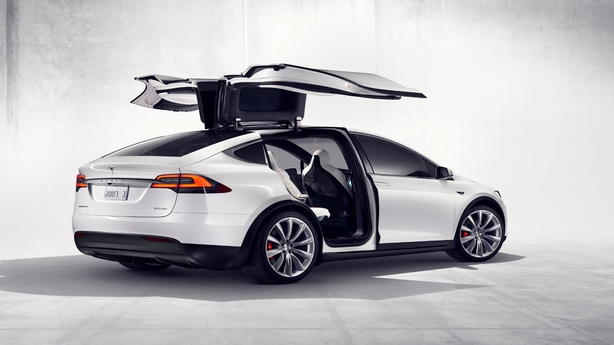Tesla's Model S and Model X SUV have been given "worse than average" ratings in Consumer Reports, an independent American consumer magazine, which publishes annual reliability reports, Reuters reports.
The company's newly introduced Model Y crossover, which has had body-hardware and paint issues, dragged down the electric-car maker's standing in the magazine's latest reliability study.
Owners of the Model Y, which began production in January, have reported misaligned body panels that had to be fixed and mismatched paint including, in one case, human hair stuck in the paint, according to Consumer Reports. The Model Y finished with a "much worse than average" reliability rating.
Tesla's ranking would have risen a few spots if not for the Model Y's performance, Jake Fisher, senior director of auto testing at Consumer Reports told Reuters.
New models often have reliability issues, but Tesla’s problems were not typical.
"I am surprised that we would see just basic paint and trim type issues and body panel fitment issues," he said in an interview. "You would think that that would have been worked out a long time ago."
"Really disappointing when you spend this much money for a car and hopefully they’ll be able to rectify a lot of these as time goes by," he added.
Tesla's ranking slipped two spots to No. 25 out of 26 brands rated in the U.S. market, ahead of only Ford Motor Co's F.N Lincoln luxury brand, according to the annual survey this week.

Tesla Model X.
The Tesla Model S sedan and Model X SUV were both "worse than average, with the former losing its "recommended" status, Fisher said. The Model 3 sedan maintained an "average" rating and its "recommended" status.
Tesla could not be reached for comment.
The poll predicts which new cars will give owners fewer or more problems, based on data collected for more than 300,000 vehicles from model years 2000 to 2020. Its scorecard is influential among consumers and industry executives. The Consumer Reports organisation has some six million members.
Brands with no major changes to their lineups, such as Mazda, made gains. Mazda finished above Toyota and Lexus brands, marking the first time a Toyota brand did not finish first in the survey, Fisher said
Tesla cars are made in the United States and also in China.
Meanwhile, the American National Highway Traffic Safety Administration (NHTSA) has said it is expanding a probe into nearly 159,000 Tesla Model S and Model X vehicles, upgrading it to an engineering analysis, a step required before it can seek to compel recalls,Reuters also reports.
The safety regulator had opened a preliminary evaluation in June over touchscreen failures. NHTSA said the failure can result in the loss of rear-camera image display when in reverse and reduced rear visibility when backing up, and can impact defogging ability, and audible chimes relating to driver assistance system Autopilot and turn signals.
Tesla did not immediately respond to a request for comment.
The probe now covers 2012-2018 model year Tesla Model S and 2016-2018 Model X vehicles. The preliminary investigation covered 63,000 Tesla Model S cars.
NHTSA said the failure does not affect vehicle-control systems.
The media control unit (MCU) uses an Nvidia Corp Tegra 3 processor, NHTSA said.
The flash devices have a finite lifespan based on the number of programs or erase cycles, NHTSA said.
Some complaints said failures could result in loss of charging ability and that other safety alerts could be impacted. One driver said he could not clear fogged windows because he could not change climate controls.
In total, NHTSA said it has reviewed 12,523 claims and complaints about the issue, which would impact roughly 8% of the vehicles under investigation.
Tesla said it has received 2,399 complaints and field reports, 7,777 warranty claims, and 4,746 non-warranty claims related to MCU replacements.
Many complaints said Tesla requires owners to pay to replace the unit once warranties expire.
NHTSA said the data showed "failure rates over 30% in certain build months and accelerating failure trends after 3 to 4 years-in-service."
Tesla has implemented over-the-air updates "to mitigate the effects of MCU failure," NHTSA said, including changes to reduce memory usage of the subject memory card, improving storage management strategies, and changing the control logic for turn signal activation.


